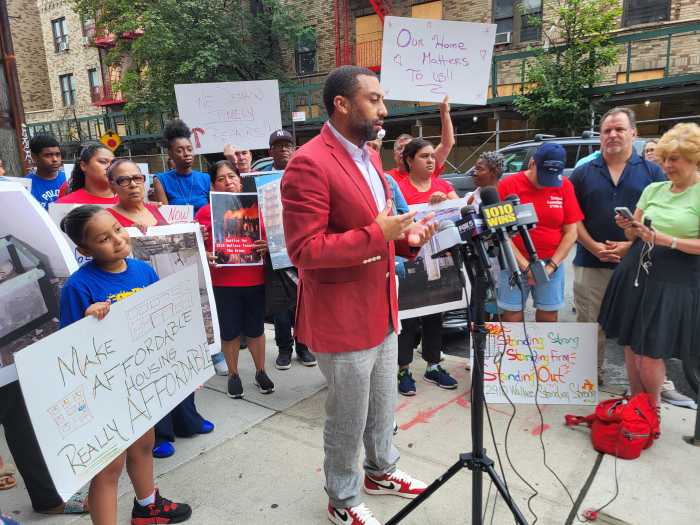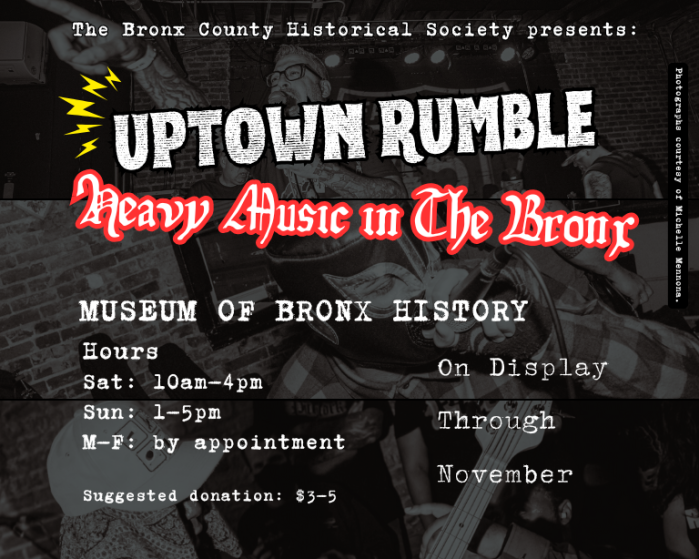Thanks to the rescue efforts of some Mott Haven residents, a rare fledgling hawk will soon be learning to fly.
The bird, a red-tailed hawk, dove from its nest Saturday, June 26, and fell five stories into morning traffic at the intersection of 149th Street and Melrose Avenue. It had hatched in the nest, which was on top of an air-conditioning unit, only a few weeks before.
Local bird watcher Candido Nieves had been keeping an eye on the nest for weeks as he took his morning run. He said as he passed the nest Saturday morning he saw one bird perched precariously at its edge. When he passed the nest again, the bird was gone.
“As they were growing I’d go and see them two or three times a day. One morning I was at the right place at the right time. She happened to be hanging on the edge of the ledge and then she fell,” he said. “She just didn’t have the strength to fly.”
When the bird landed it ran into the mid-morning traffic, and Nieves ran after it. Once he got it, he called his friend Harry Bubbins, director of the Friends of Brook Park environmental group, who then called Danny Chervoni, a friend of Nieves and an animal lover.
“I was at home and my friend calls me from the garden and he said ‘your friend is here with a hawk.’ So I hung up the phone and I ran down there,” Chervoni said. “You could tell the hawk was weak.”
The pair then carefully placed the bird in a makeshift cage made of two milk cartons, hopped into a canoe and began furiously paddling up the Harlem River.
They canoed about 50 blocks up the Harlem River, where licensed falconer Ludger Balan was giving a presentation about native birds. Chervoni knew about the event and had planned to attend later that day.
“The guy we gave it to, he had a female hawk, and when the baby saw the female hawk it started screaming. It really thought it was his mother,” Nieves said. “She was hungry and we fed her right there.”
Balan fed the bird some raw rat and chicken meat and gave it some water. He took the bird to the Urban Divers/Harlem River Ecology Center Environmental Program headquarters in Long Island. It will remain there until it learns to fly, so it can be safely released into the wild.
Although the red-tailed hawk breeds from Alaska to Panama and is a species native to the Bronx, the bird is becoming a rare sight since around 85 percent of the fledglings die each year, Balan said. He said the birds poison themselves accidentally by eating rats and mice that have ingested rodenticides.
“It is fantastic that they rescued her,” Balan said. “When she came to us she was a little dehydrated, and now she is on her way to the rehab center. It will be released and have a better chance at survival. When it gets a little bigger, hopefully it will pick a mate, and then the species will continue to propagate.”
Reach reporter Max Mitchell at (718) 742-3394 or mmitchell@cnglocal.com




















